From Day One: Exclusive Breastfeeding A Cornerstone of Maternal and Child Nutrition
Published on December 9, 2024
By Alana Barton; photos by Pamela Tulizo Kamale

The first few weeks of a newborn’s life are the most precarious: There are about 6,500 newborn deaths each day globally, and nearly half (47%) of all deaths among children under five happen in the month after birth.1 Good nutrition can help reduce the risk of newborn death and illness and has manifold benefits including a strengthened immune system and lower susceptibility to many diseases. The World Health Organization (WHO) advises that the best path to healthy growth and development during the first six months of life is exclusive breastfeeding.
MOMENTUM Integrated Health Resilience has made investments in exclusive breastfeeding as part of essential newborn care to prevent infant malnutrition, and early illness and death. This work is part of ongoing and holistic counseling and care for mothers and their children. Breastfeeding seems like a simple approach to newborn health, but to be effective it must include quality maternal nutrition and antenatal care, coaching and support for new mothers, and community sensitization around the importance of nutrition for whole family health.
Breast milk has numerous benefits for a child’s health, survival, and development. It is the earliest and most essential source of good nutrition, as it contains all the nutrients and water needed for the first six months of life. It also protects against diarrhea and acute respiratory infection, among other health complications. Breastfeeding enables healthy growth and development of the child, prevents undernutrition and malnutrition, promotes brain development, and boosts the immune system against disease.
MOMENTUM Solutions Start with Primary Care
In the Democratic Republic of the Congo (DRC), MOMENTUM supports existing national and local health systems to strengthen maternal and child nutrition in the first months of a newborn’s life, when it matters most. In collaboration with the DRC Ministry of Health and the Programme National de la Santé de la Reproduction (North Kivu National Reproductive Health Program or PNSR) MOMENTUM recently trained health care providers at facilities in three major population centers: Goma, Karisimbi, and Nyiragongo, to use a tool called the Safe Delivery Checklist.


The Checklist integrates coaching and counseling on breastfeeding immediately after birth for new mothers into holistic care focused on identifying risks before, during, and after delivery for both mother and child. This tailored approach spans the duration of treatment, beginning with hospital or clinic admission. A Checklist follow-up mechanism ensures health workers have implemented this vital early-stage care, and evaluates whether providers have assessed the baby’s breastfeeding and given advice about continuing exclusive breastfeeding until six months postpartum. The Checklist is a promising tool for the DRC, where just half of all children under six months are exclusively breastfed.2
MOMENTUM has also supported the Ministry of Health to set up, equip and strengthen the capacity of Integrated Community Case Management (iCCM) sites, where health workers counsel patients about the benefits of exclusive breastfeeding. These iCCM sites target the DRC’s high mortality among children under five by offering community-level care for easily treatable childhood illnesses such as pneumonia, malaria, and diarrhea. In addition, the sites offer a range of lifesaving services including acute malnutrition screening and referral for treatment, identification of children and pregnant women whose vaccines are not up to date, micronutrient supplements, and family planning.
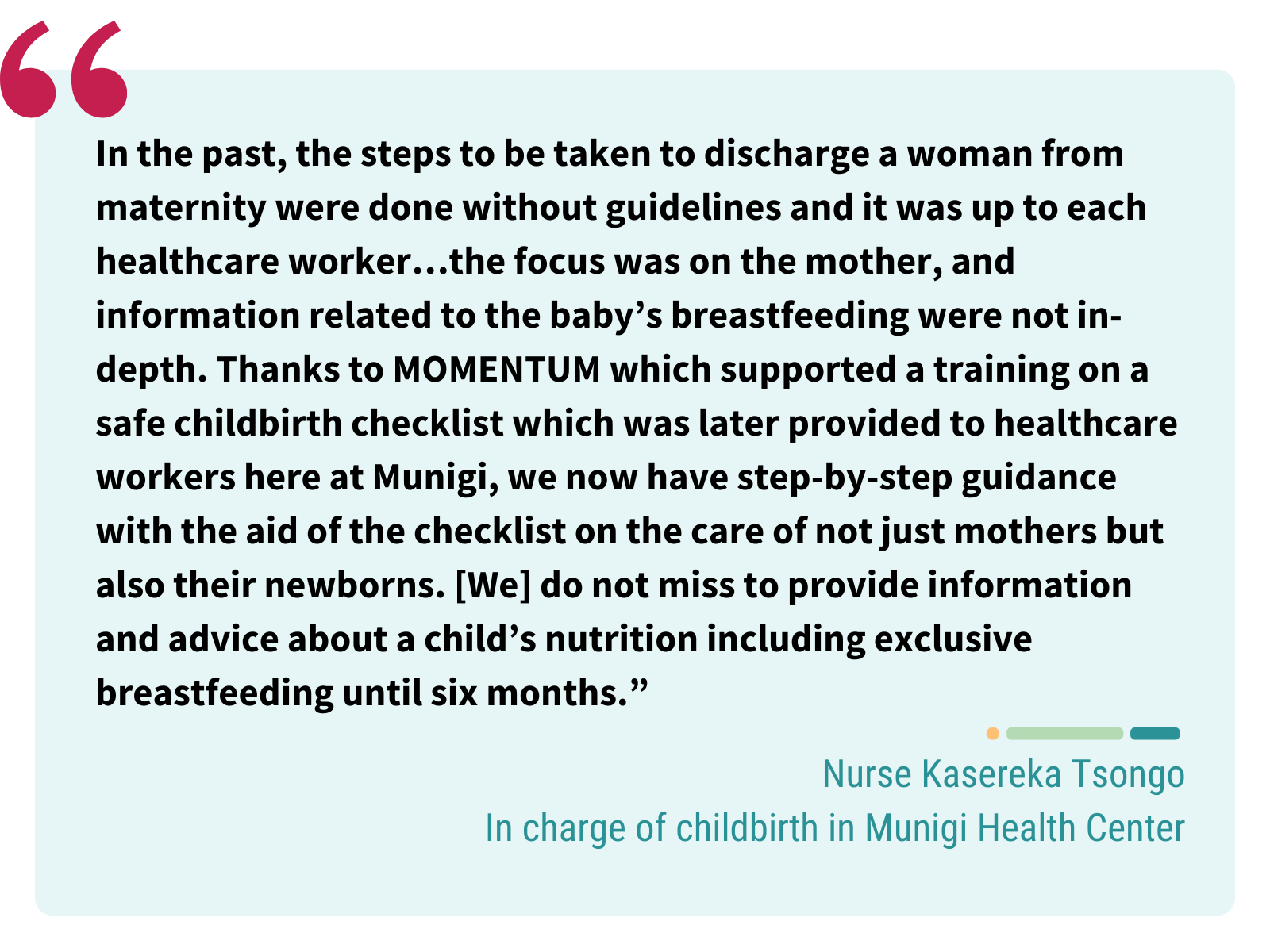

A Community Health Worker Reaches New Mothers With MOMENTUM
Desange Maombi Kiziraho is a nurse in charge of antenatal and postnatal care at Munigi Health Center in Nyiragongo Zone. Part of her daily work includes coaching women from pregnancy through childbirth about how to support their own and their babies’ health. As part of this work, breastfeeding “is highly relevant especially in our context not just for mothers but also for their babies given the high prevalence of malnutrition in children,” she said.
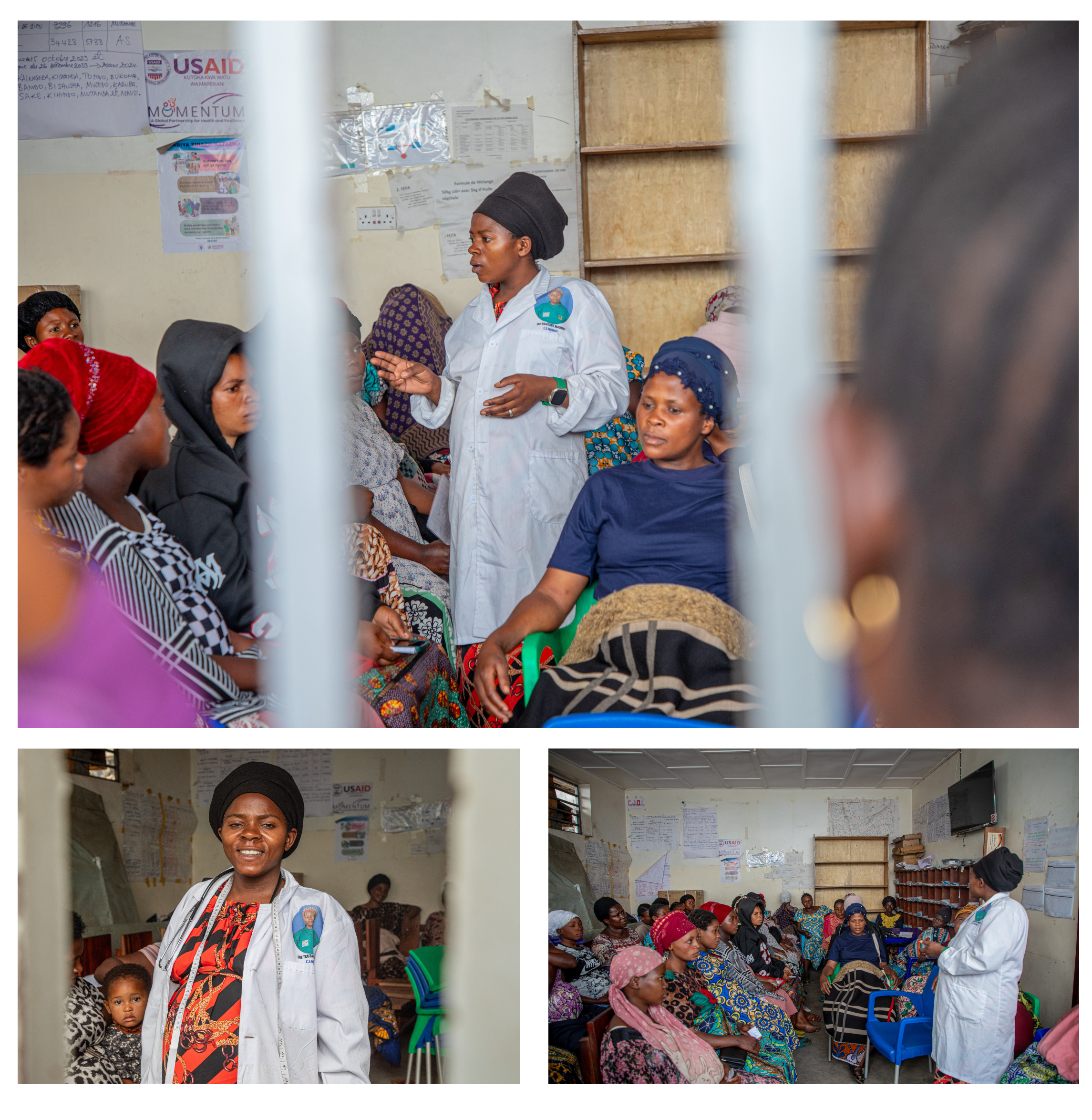
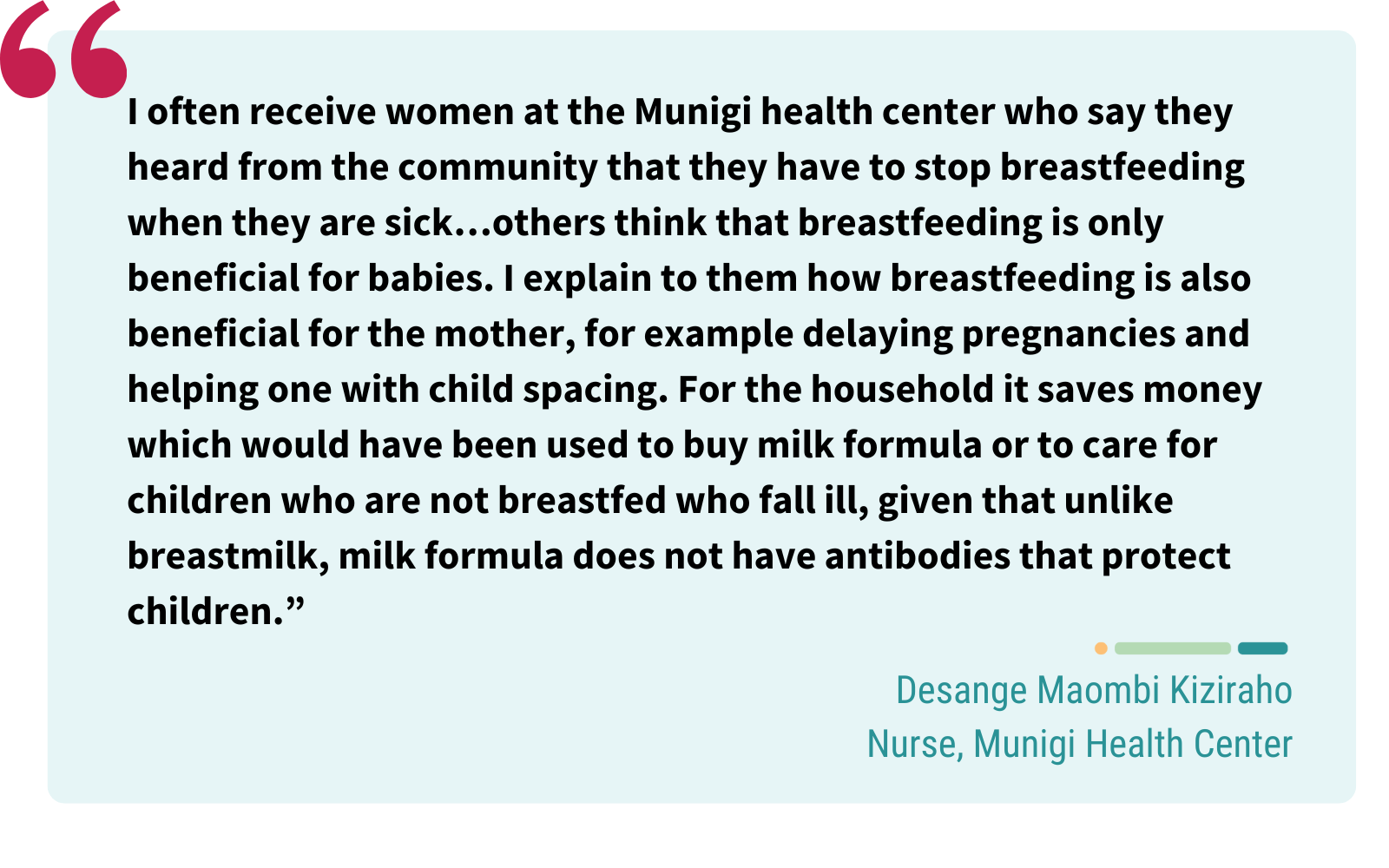
Nurse Maombi learned about breastfeeding during her early professional training. But, she said, learning about it theoretically was very different from her current work in clinics and maternity wards, which includes direct interaction with patients from diverse backgrounds and information levels. MOMENTUM first reached nurse Maombi in 2021 with training on basic obstetric and newborn care in a clinic setting. Since then, MOMENTUM support has reinforced her knowledge and practice around exclusive breastfeeding as a form of essential newborn care and has helped her troubleshoot mothers’ concerns and questions around breastfeeding.
A Mother Charts a Healthy Future for Her Family
One of the women Nurse Maombi coached is Beatrice Ushindi Semasaka, a mother of six in Munigi. Beatrice works as a petty trader and her husband as a motorbike taxi driver, and while the couple prioritize their family’s health they sometimes struggle to make ends meet. One of Beatrice’s hopes is that her children will each have the chance to attend school, which she did not.

Beatrice learned from MOMENTUM-trained community health workers about the benefits of exclusive breastfeeding, and she prioritizes breastfeeding to provide essential vitamins and nutrients to her children. At the same time, she learned about the importance of her own diet in maintaining a healthy family both during and after pregnancy. A woman’s diet during pregnancy is a critical part of early nutrition, as it affects fetal development and a baby’s weight at birth which then affects the child’s chance of survival. An estimated 60-80% of deaths among babies under one-month-old are among low-birth-weight babies.3
To support whole-family nutrition, Beatrice received information about what locally available foods provide the nutrients and sustenance needed for healthy development, and about solutions such as community gardens that can support families in eating well.
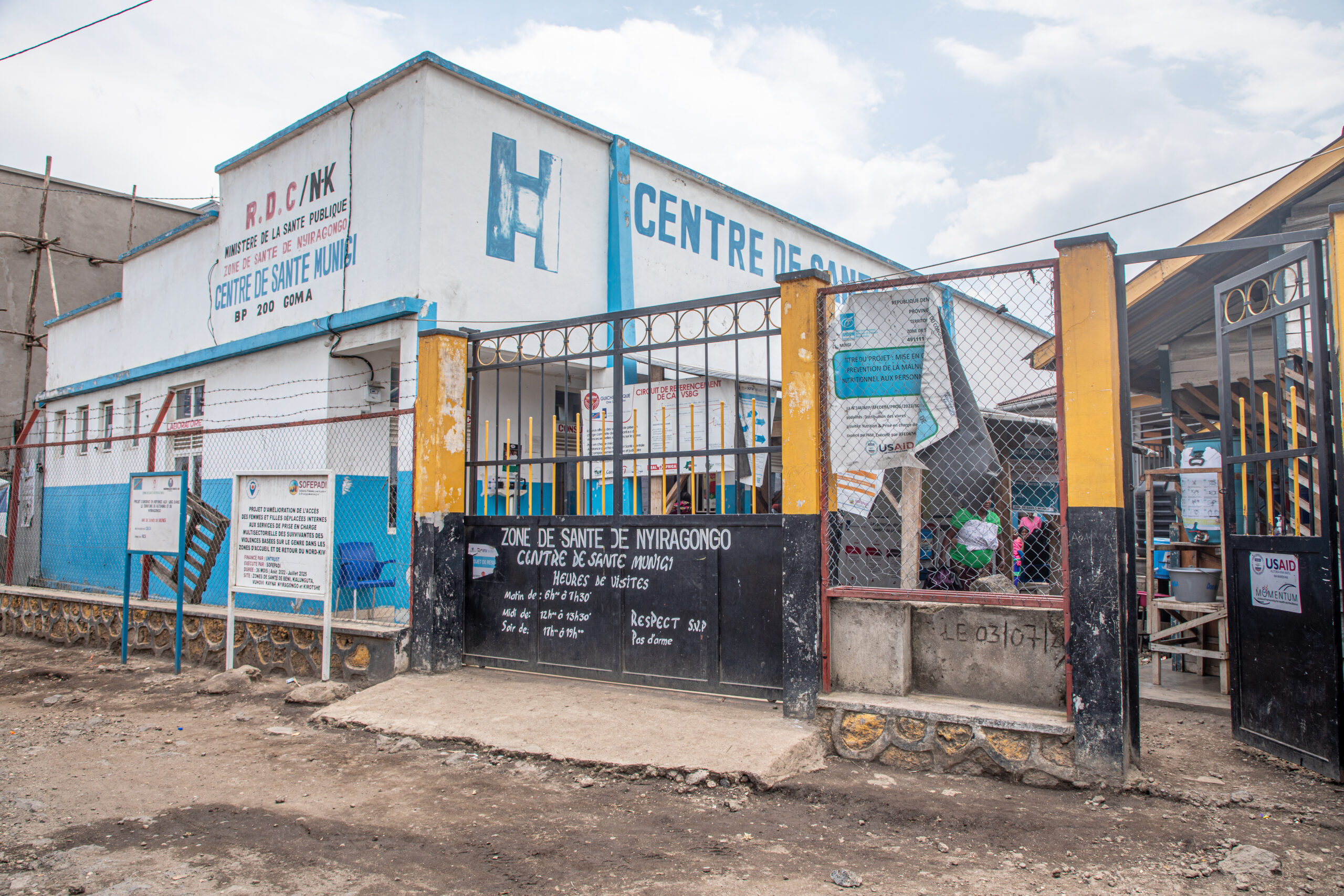
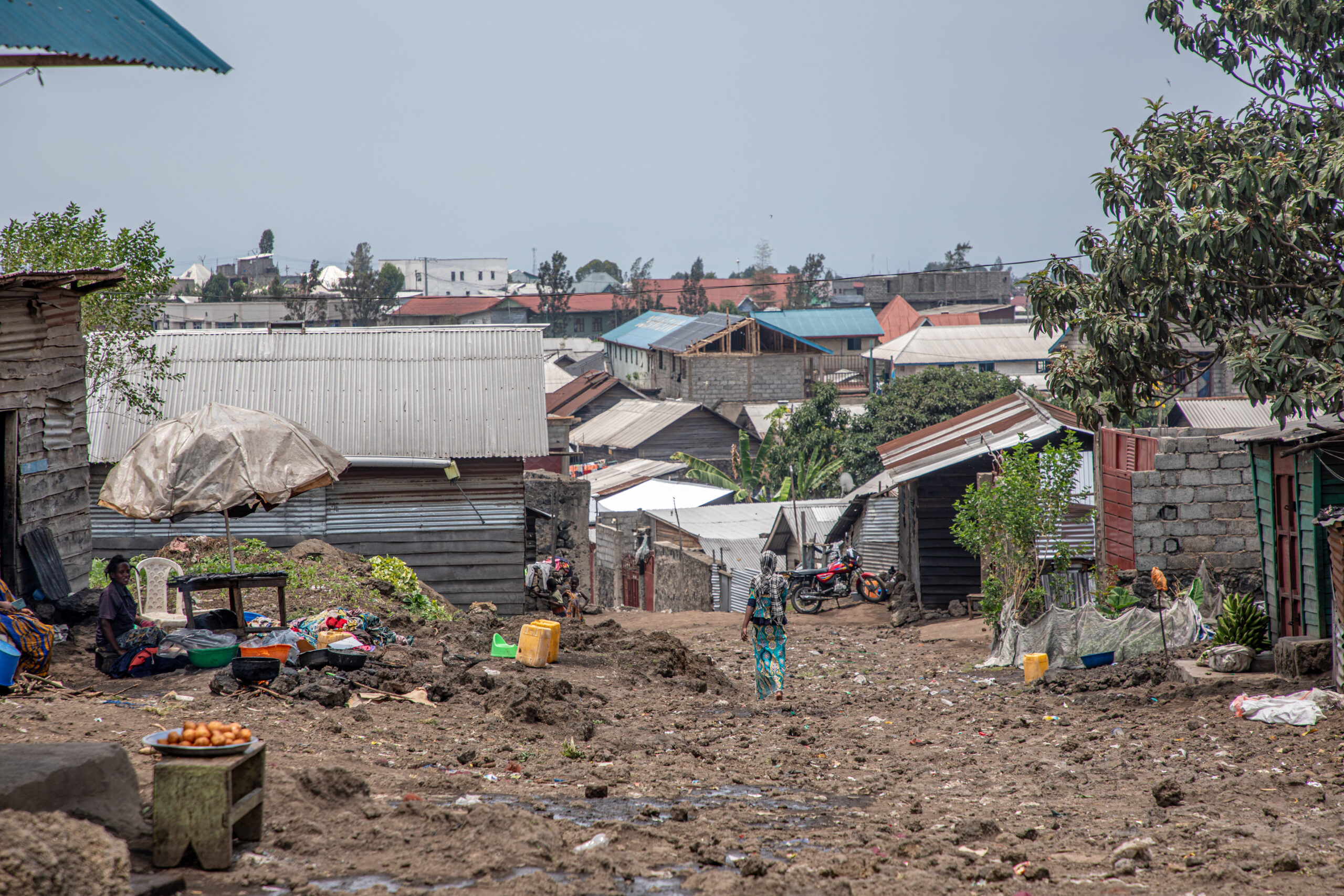
Community Groups, Gardens Create Sustainable Nutrition Solutions
In addition to its Safe Childbirth Checklist training and direct support for health care providers, MOMENTUM has helped the Ministry of Health in North Kivu revamp 460 community nutrition support groups. These groups gather mothers at least once a month to learn from their peers about mother, infant, and young child nutrition. Mothers learn about what constitutes a healthy diet for their children and themselves, and they participate in cooking demonstrations that are organized during those meetings using harvests from kitchen gardens.
So far, MOMENTUM has supported the setup of 360 kitchen gardens and 52 community gardens to improve affordable and sustainable access to nutrient-rich local foods. This comes at a time when the DRC is facing one of the world’s most severe hunger crises, affecting more than 23 million people.4 Global supply chain disruptions have deepened an emergency caused by ongoing insecurity and displacement due to armed group activity, disease outbreaks, and chronic poverty.
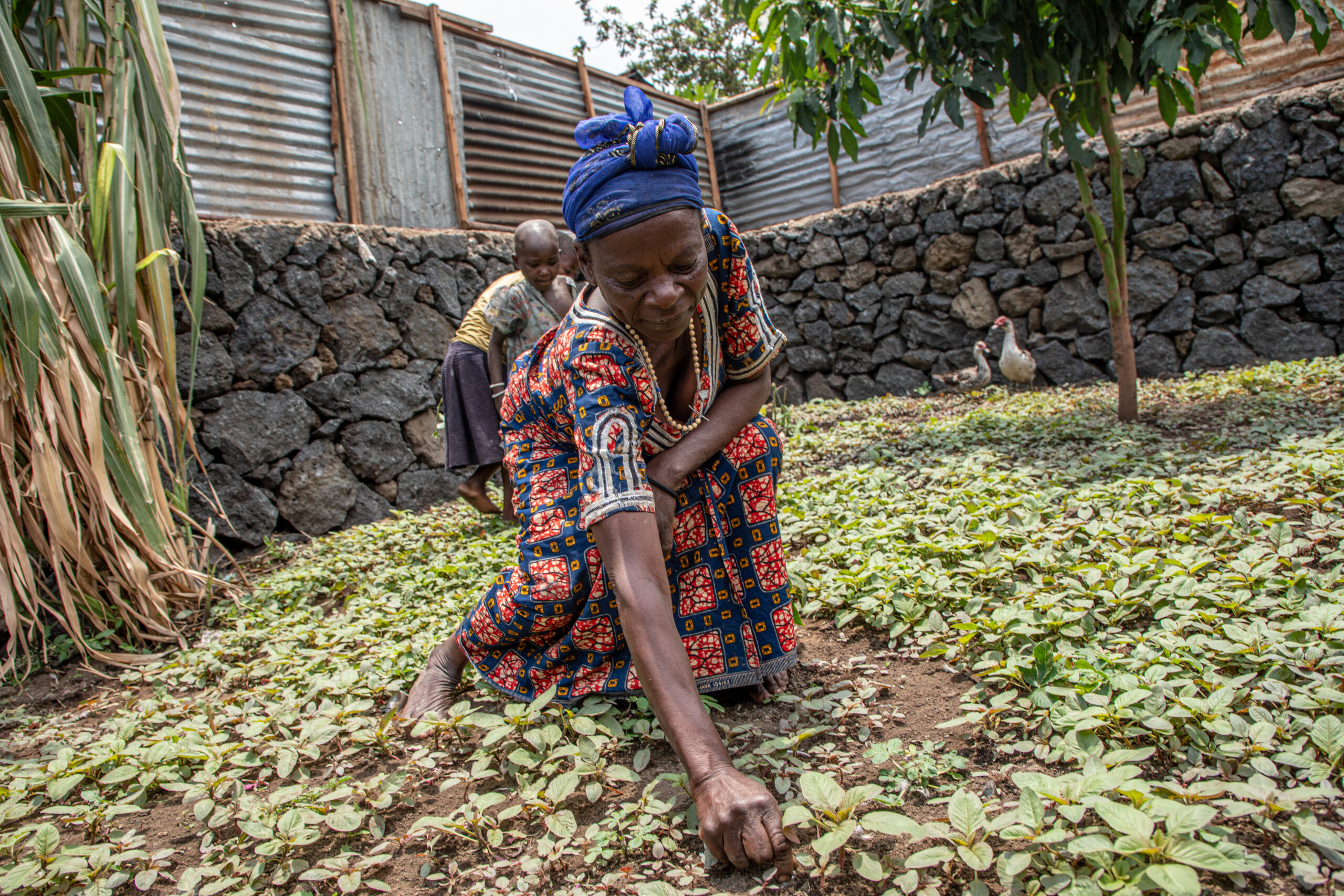
Beatrice Ushindi shares the knowledge she gained through MOMENTUM with other mothers in her community. Apart from the nutrition benefits, Beatrice notes that exclusive breastfeeding can save families the expense of formula and assists with birth spacing. It is also the safest, healthiest choice for babies. Her six-month-old daughter Gloria Bahati is the latest beneficiary of MOMENTUM’s maternal and newborn nutrition initiatives. “I learnt that the knowledge we receive during antenatal care sessions should be shared with friends and family in the community,” Beatrice said. “So, I take the advantage when my friends or relatives have a baby to share with them what I know…”
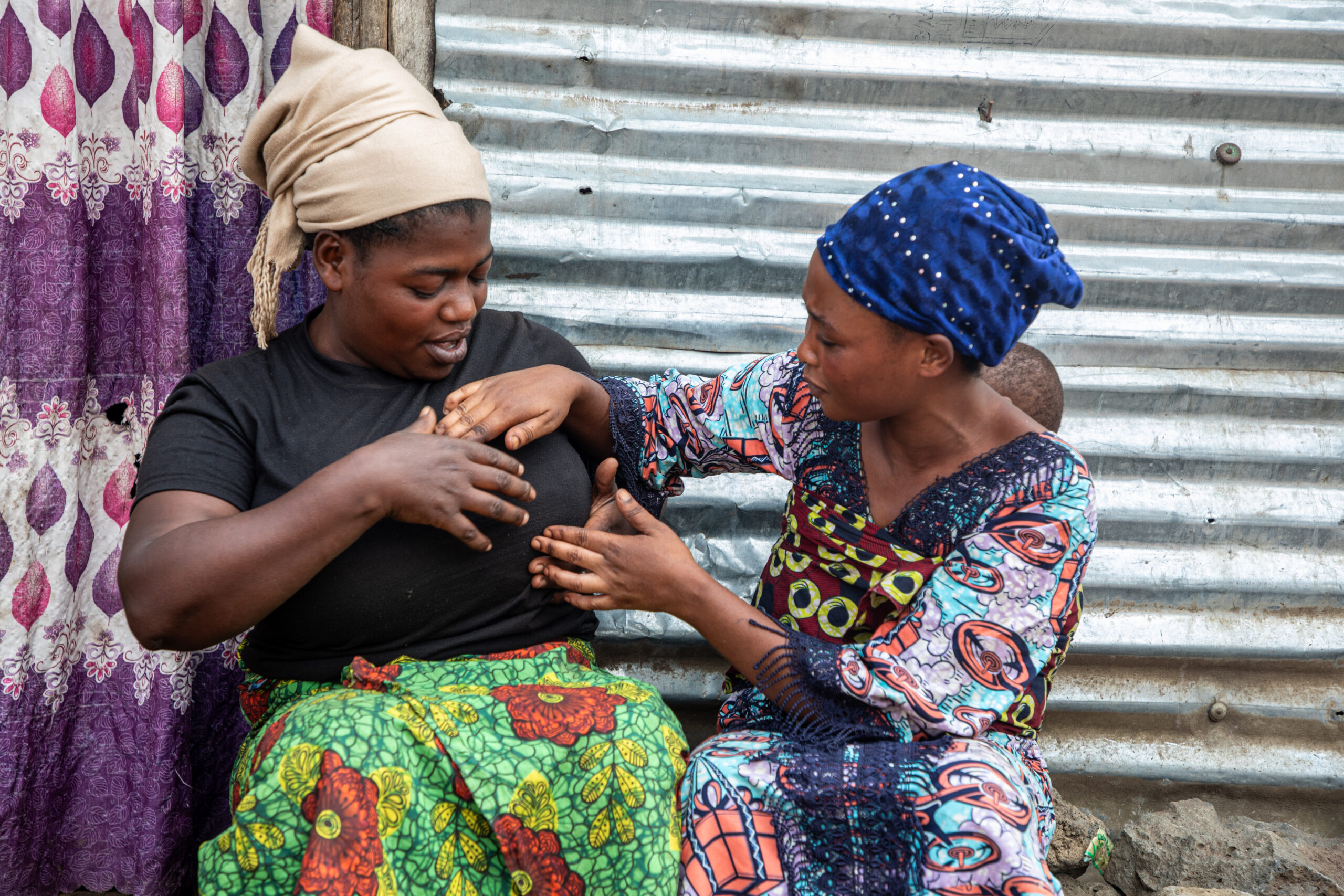
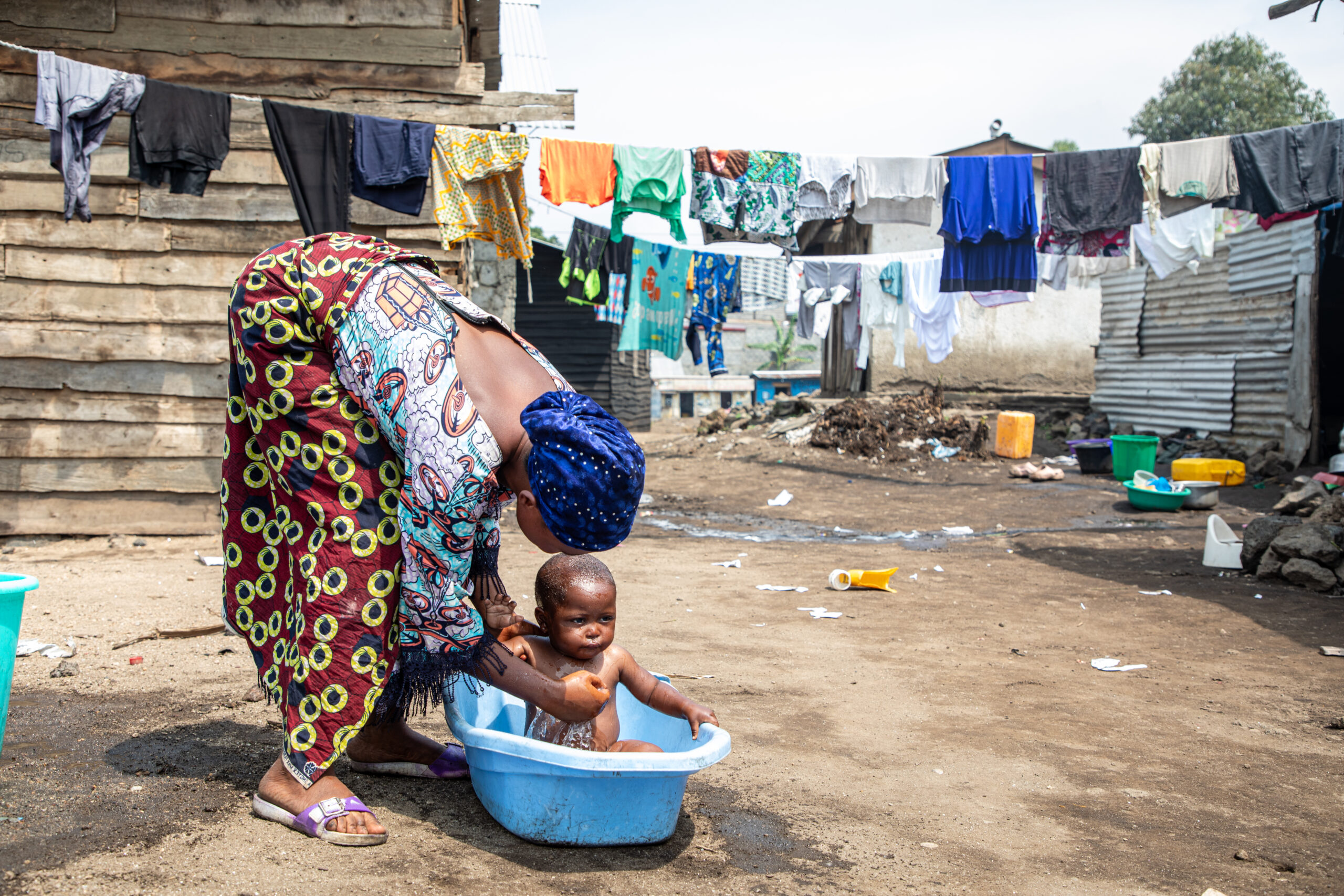
References
- “Newborn Mortality.” World Health Organization, March 14, 2024. https://www.who.int/news-room/fact-sheets/detail/newborn-mortality.
- Babakazo, Pélagie, Lina M. Piripiri, Jean-Marie Mukiese, Nelly Lobota, and Éric Mafuta. “Breastfeeding Practices and Social Norms in Kinshasa, Democratic Republic of the Congo: A Qualitative Study.” PLOS Global Public Health 4, no. 4 (April 16, 2024). https://doi.org/10.1371/journal.pgph.0000957.
- “Role of Nutrition in Preventing Child and Maternal Deaths: Technical Guidance Brief: Global Health.” USAID, March 3, 2023. https://www.usaid.gov/role-nutrition-preventing-child-and-maternal-deaths-technical-guidance-brief.
- “Democratic Republic of the Congo.” World Food Programme (WFP). Accessed December 9, 2024. https://www.wfp.org/emergencies/drc-emergency.

